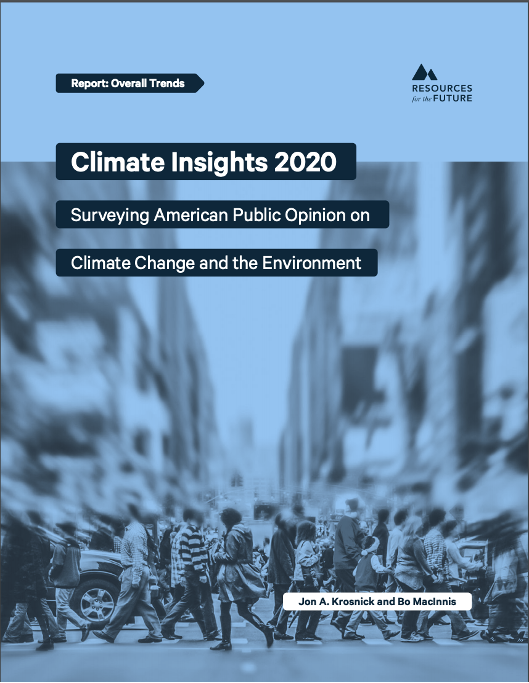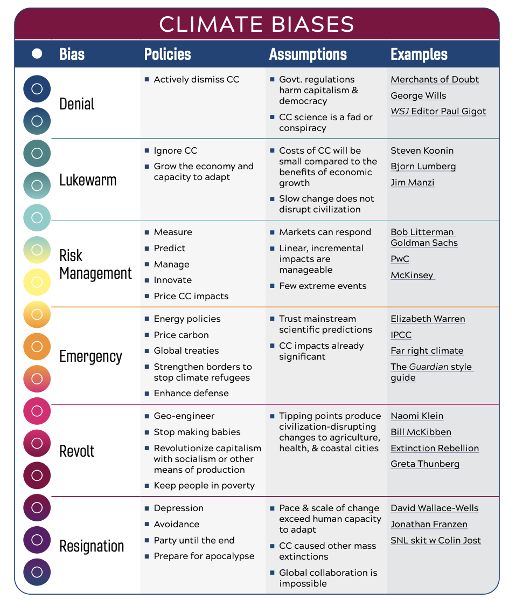Depolarizing climate action
April 20, 2021

By Bruce Hull
Believe it or not, passionate concern for the climate may be holding back progress on the crucial environmental issue of our time.
Triggers vs. drivers
As the recent U.S. presidential election amply demonstrated, we live in polarizing times. People are divided by political party, COVID, racial reckoning, and, of course, climate change. The mere mention of these issues triggers “identity protective reasoning,” which causes us to react defensively, protecting the position of those in our ideological “tribe.” Too often, we then ignore information that doesn’t support our tribe’s positions, shun those in our ranks who dare to ask questions, and hurl insults towards those with different views.

A recent poll shows that 25% of Americans say climate change is now their top issue: it defines who they are, how they live their lives, where they shop, who they donate money to, and who they vote for. The technical term for people driven by a single issue is “issue public.” For climate, the issue public is larger than ever, second only to abortion, and larger than guns, immigration, and homosexuality. That means climate is a trigger issue for many Americans.
Triggering identity-protective reasoning causes problems when collaboration is criticized as “working with the enemy,” and compromise is equated with surrender.
Proven collaboration strategies
Fortunately, strategies exist to depolarize these situations. For example:
Make the issue local, personal, and specific. Rather than use broad terms like “climate change,” focus instead on specific impacts to flooded roads, property value, family health, farm productivity, and hunting opportunities.
Focus on concerns most people share, such as health, security, and prosperity, rather than polar bears and melting glaciers.
Avoid “solution aversion,” which happens when people fear the cure is going to be worse than the disease. People are concerned that climate action could damage the American economy and cause businesses to move overseas. Focus instead on job creation, carbon dividends, and border adjusted carbon tariffs that enhance local economies and level the global playing field.
Reframe the argument. Championing large federal programs such as cap-and-trade can alienate people concerned that government regulation of the economy is a foot in the door for socialism. Instead, emphasize the business case for climate action made by major corporations and the national security case made by defense analysts.
Viable technologies, policies, and market strategies exist that will reduce emissions to levels that are safe and healthy for the planet and economy. Yet, we won’t implement and scale these solutions, or discover new ones, without collaboration and compromise. And that won’t happen unless we overcome the blinding passion of zealotry that leads to a refusal to work with the others.
Climate biases awareness
To be more effective in overcoming our own internal tribalism and identity-protective reasoning, we need to recognize and reckon with biases that each one of us holds. Don’t think you are biased? I invite you to consult this table and think again. It’s OK to have biases, as long as you know how to work around them and help others do the same. In a recent blog post, I shared collaborative leadership practices for managing your own biases and navigating the biases of others.

So, do you care enough about climate change to hold your climate identity in check, to build bridges to people who don’t feel as strongly as you, and to experiment with novel solutions? If you can do that, you might not always get your way, but together we can find a way forward.

Dr. Hull is a Senior Fellow at Virginia Tech’s Center for Leadership in Global Sustainability in Arlington and a professor at VT’s College of Natural Resources and Environment in Blacksburg. He writes and teaches about leadership for sustainable development and how to have influence in the cross-sector space where government, business, and civil society intersect. He recently co-authored a book with CLiGS colleagues Drs. Mortimer and Robertson, called Leadership for Sustainability: Strategies for Tackling Wicked Problems.


